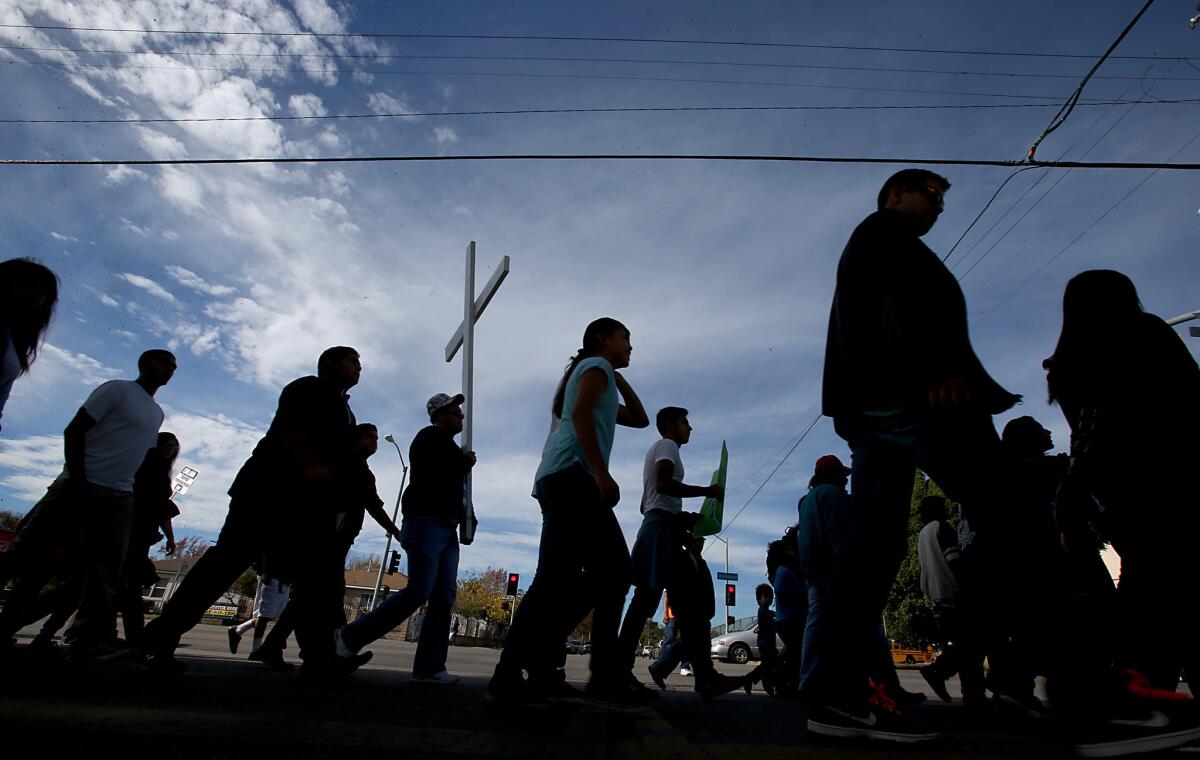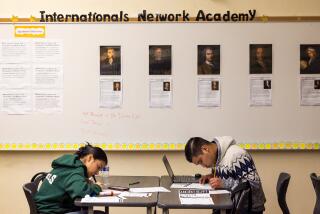Immigrants less prone to violence, ‘antisocial’ behavior, study says

Immigrants are less likely to shoplift, skip work or school, hurt people or engage in other “antisocial” behaviors, despite being poorer, more urbanized and less educated than people born in the United States, a new study based on a sweeping national survey shows.
The study, recently published in the journal Social Psychiatry and Psychiatric Epidemiology, buttresses earlier research based on arrests and crime rates. The intriguing pattern has already challenged conventional theories about the ties between problem behaviors, poverty and other disadvantages.
“It turns traditional theories on their head,” said Michael G. Vaughn, a Saint Louis University professor and one of the authors of the study. “Immigrants often come to the United States with very little. They are socially disadvantaged. But they’re not contributing much to the crime rate.”
Researchers used data from a nationally representative survey that included roughly 43,000 people to compare the actions of immigrants to people born in the U.S. They looked at dozens of self-reported behaviors, including bullying, stealing, racking up traffic tickets and other troubling actions, both violent and nonviolent.
All in all, researchers found that immigrants were about half as likely to say they had engaged in such behaviors, even after researchers controlled for alcohol and drug use disorders, mental health conditions, gender, race and ethnicity and other demographic variables.
The same pattern held when researchers zeroed in on immigrants from specific regions, including Africa, Latin America, Europe and Asia. People born in the U.S. were roughly four times as likely to report engaging in violent behavior than immigrants from Asia and Africa, and three times as likely as immigrants from Latin America. European immigrants came closest to people born in the U.S., the researchers found, but were still much less “antisocial” than native-born Americans.
The results also paint a worrisome picture of what it means to adapt to the American way: Immigrants who came to the U.S. before they became teenagers were more likely to have troubled behaviors, and the longer people spent in the country, the more likely they were to do so.
They were still much less prone to those problem behaviors than native-born Americans, however. The study estimated that for every year an immigrant spends in the U.S., he or she is 1.9% more likely to be violent and 0.9% more likely to commit acts of “nonviolent antisociality,” such as stealing or cutting class.
“It’s fascinating because no one really knows for sure” why it’s happening, Vaughn said. If you’re an immigrant who wants to be in the U.S., “you’re probably wanting to play by the rules and keep out of trouble.”
He theorized that feeling might fade as immigrants spend longer in the U.S. That pattern suggests that boosting immigration probably will not combat crime in the long term, since immigrants and their children slowly come to act more like other Americans, Vaughn and his fellow researchers wrote.
The data used in the study came from two waves of the National Epidemiologic Survey on Alcohol and Related Conditions, the first in 2001 and 2002, the second in 2004 and 2005.
ALSO:
Fat and healthy is a myth, new study says
Brains of women and men show strong hard-wired differences
Moms spending less time behind a mop, more in front of a TV







